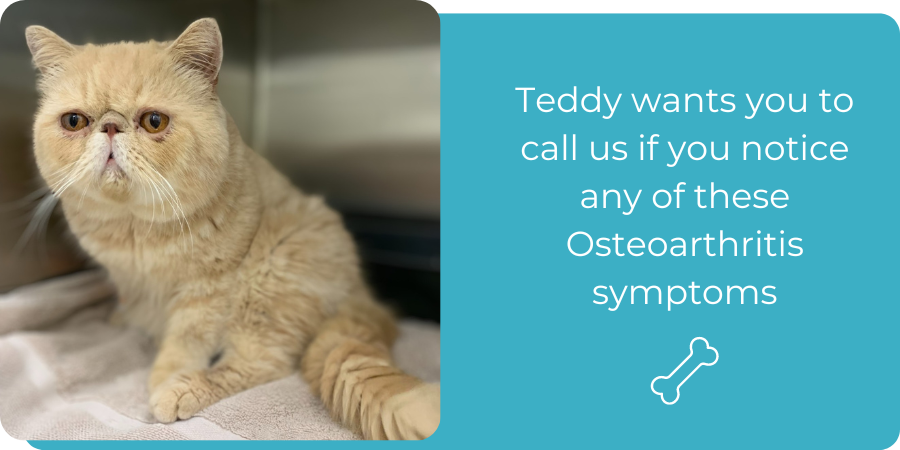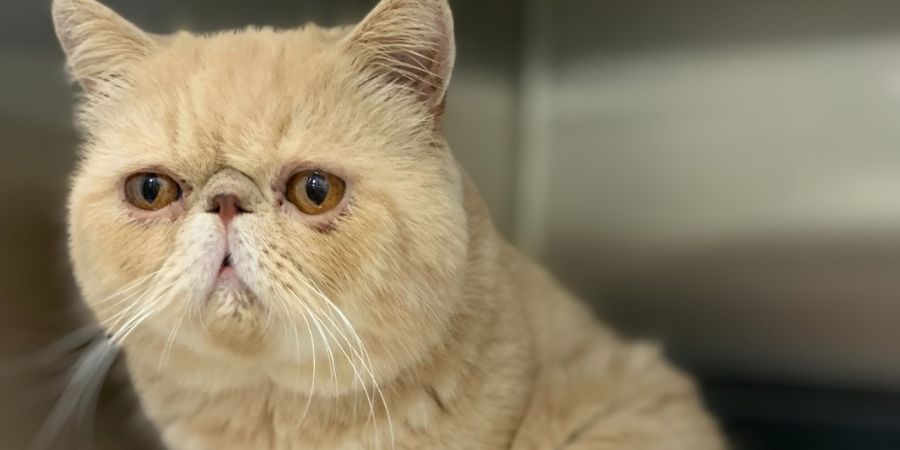What is Pet Osteoarthritis?
Pet osteoarthritis is a common degenerative joint disease that affects animals, particularly older pets like dogs and cats. It’s similar to osteoarthritis in humans and involves the progressive deterioration of the cartilage within the joints. Cartilage acts as a cushion between bones, allowing for smooth movement, but when it wears away, bones can rub against each other, causing pain, inflammation, and stiffness.
Also known as arthritis, osteoarthritis in your kitty or doggo can be tricky to pick in its early stages. Changes in the joint aren’t yet visible and, with four legs, our dogs and cats can shift their weight and posture to cope with pain.
Several factors can contribute to the development of osteoarthritis in pets, including genetics, age, obesity, joint injuries, and certain medical conditions. Common symptoms of pet osteoarthritis include limping, stiffness, difficulty rising or lying down, reluctance to jump or climb stairs, and behavioural changes like irritability or withdrawal.
“Is my woofer just slowing down as he ages?”
Owner’s may think, “he’s just slowing down,” or “he’s just a bit stiff.” Many don’t notice that their pet is not as willing to move around and play as he once was, as the changes within the joint is so gradual. Unfortunately, by the time it becomes obvious, the arthritis is quite advanced and will be causing considerable pain.

Pet Osteoarthritis Symptoms – When to Contact A Vet
It is important to get in touch with us if you notice any of these symptoms:
- Stiffness when getting up after sleeping (yes, just like us humans!)
- Limping or stiffness after a walk or exercise
- Licking or gnawing at joints or paws
- Puffy joints
- Abnormal gait
- Reluctance to walk upstairs or jump
- Reluctance to play and run
- Change in behaviour such as aggression when picked up
- Difficulty grooming
- Postural change or muscle wastage
- Hesitant to jump from heights
- Spending less time playing and more time sleeping
Pet Osteoarthritis Treatments
Let’s start with a consultation to establish a treatment plan. It’s important to note that the pain of arthritis can be treated!
Treatment for pet osteoarthritis aims to manage pain, reduce inflammation and improve mobility. We may recommend things such as medications (eg nonsteroidal anti-inflammatory drugs & joint supplements), weight management, physical therapy, exercise modification, and in severe cases, surgery.
Your Friendly Local Vet Can Help
Early detection and intervention can help improve the quality of life for your furry family member with osteoarthritis.
If you’re thinking this could be more than just slowing down with age, please contact you friendly Coombabah Vet team at Happy Paws Vet Clinic.
We always strive to provide you with exceptional service, value for money and to give your furry family the best veterinary care possible.🐾💙







